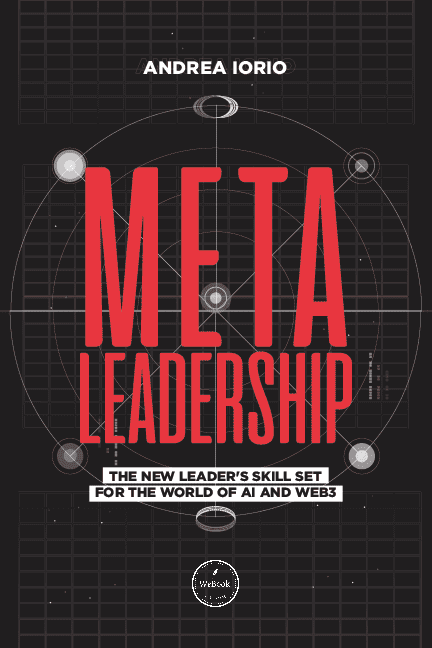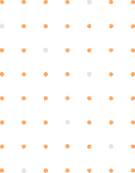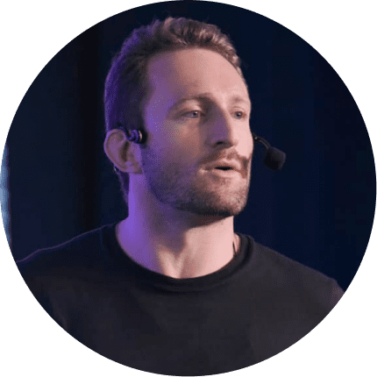Recently, a company that I am delighted to collaborate with as the host of the "Vem A.I" podcast in Brazil, namely Nvidia, has seen such a significant increase in its market valuation that it has become part of the exclusive group of companies worth over 1 trillion dollars. It is only the ninth company in the world to achieve this milestone, along with Apple (AAPL), Microsoft (MSFT), Alphabet (GOOG), Amazon (AMZN), and Saudi Aramco. In the last quarter, the company's profit increased by 26% to $2 billion, and sales rose by 19% to $7.2 billion, easily surpassing the predictions of Wall Street analysts. The value of its shares has risen by about 180% so far this year. This is due to the growth of AI as a technology and its increasing adoption in the business world.
PwC announced in April that it will invest $1 billion over the next three years, while EY announced in 2021 that it will invest $2.5 billion over three years. Bain and Company have partnered with OpenAI, the creator of ChatGPT, while Deloitte is joining forces with the chip manufacturer Nvidia. IBM, whose work in AI dates back to at least the introduction of Watson, announced a "Center of Excellence" for generative AI.
Investments in generative AI are expected to reach $42.6 billion by the end of the year, according to PitchBook. Mentions of "A.I." or "artificial intelligence" in corporate investor calls have surged this year. In other words, the growth of Artificial Intelligence is a fact. But how far will we go? What does this growth imply for the attainment of what is often called "General Artificial Intelligence"? Should we expect innovation after innovation, or perhaps, for a while, not so much?
Let's listen to a statement from Mark Zuckerberg, CEO of Meta, who talks about why we shouldn't expect major innovations in the field of AI in the next few years. Listen below and don't forget to enable YouTube subtitles.
“In What Year Do You Think We Will Have Superintelligence?
I don't know, I mean, this is pure speculation. I think it's quite clear, taking a step back, that we had a significant breakthrough in the last year, yes, right, where large language models (LLMs) and diffusion models basically reached a scale where they can do interesting things. So the question is: what happens from here? And to illustrate the two extremes:
On one side, it's like, okay, we've just had one breakthrough. If we have another breakthrough like that, or maybe two, then we could have something truly mind-blowing, right? And it's like it's much more advanced. And on the side of this argument, it's like, okay, maybe we're just a few steps away from reaching something that looks more like general intelligence. Okay, that's one side of the argument. And the other side, which is what we historically see more often, is that one discovery leads to, you know, in this Gartner hype cycle, there's the hype, and then there's the trough of disillusionment when people think, okay, there's a chance that, okay, there's a big discovery, maybe we're about to have another big discovery. And it's like, in reality, you're not about to have another discovery. Maybe you have to live with this for a while. And you know, it could be five years, it could be ten years, it could be 15 years until you discover what the next big thing that needs to be discovered is. But I think the fact that we've just had this discovery somehow makes sense that we're at a point of almost very wide margins of error about what happens next. Yes, I think the traditional technical view, or looking at the industry, would suggest that we won't just stack one discovery on top of another every six months or so. Now, I think it's going to take more time between them."
A question that every leader asks when faced with new technologies is: when they make bold promises, how to discern the hype from what is commercially viable? And when will these claims pay off, if ever? To answer these questions, there is the Gartner Hype Cycles, which provides a graphical representation of the maturity and adoption of technologies and applications, and how they are potentially relevant to solving real business problems and exploring new opportunities. The Gartner Hype Cycle methodology provides insight into how a technology or application will evolve over time, offering a reliable source of insight to manage its deployment in the context of specific business goals.
How does it work?
Each Hype Cycle delves into the five main phases of the technology life cycle. They are:
Innovation Trigger: a possible technological innovation kicks things off. Early proofs of concept and media excitement generate significant hype. Often, usable products do not exist, and commercial viability has not yet been proven.
Peak of Inflated Expectations: initial excitement results in various success stories, but there are also many failures. Some companies take action while others fall behind.
Trough of Disillusionment: interest wanes as experiments and implementations fail to achieve desired results. Some tech companies take off, while others fail. Investments continue only if surviving providers enhance their products to meet early adopter needs.
Slope of Enlightenment: more examples of how technology can benefit businesses begin to materialize and are more widely understood. Technology providers launch second and third-generation products. More companies invest in pilots, though cautious companies still approach with care.
Plateau of Productivity: mainstream adoption begins to take off. Criteria for evaluating the viability of providers of this technology are more clearly defined. The broad applicability and relevance of the technology are clearly proven and reward the overall market.
According to Mark Zuckerberg, we are currently in a phase where, after a significant breakthrough like the maturation of Large Language Models and the popularization of solutions like ChatGPT, a disillusionment with the technology is expected. Hasn't this happened with the metaverse and other Web3 technologies after all?
Think about it: it's not easy to maintain a constant pace of innovation, especially in the field of AI. If we carefully analyze its history, this technology experienced a deep "winter" with limited research and innovation in the field.
Let's consider how Large Language Models (LLMs) and ChatGPT have filled a gap in human manual and cognitive work inefficiencies (such as content creation, mnemonic study, logical reasoning) to the point where one could courageously say that it is possibly the innovation that has most simplified human life in history and has most addressed the gap of inefficiency and low productivity related to the time it took humans to perform these activities.
This leads us to reflect on whether we are really still far from achieving Artificial General Intelligence (AGI), which is what Ray Kurzweil defined as the element behind the singularity. To understand this discussion, we need to start with the following: It seems that there are organizations and structures in the world that are more intelligent than humans. For example, a company that acts as an entity with a unique brand. Although it is composed of people, we expect a company with many employees to make smarter decisions than a single person. It would be concerning if it were otherwise. Another example is the stock market, which is a distributed system where millions of people worldwide vote daily by choosing where to invest. This system is more intelligent than any individual and is used to allocate capital efficiently globally. I believe that there are already cybernetic systems that combine the intelligence of various people or the intelligence of people and technology to form something dramatically more intelligent than any individual. We can leverage these systems productively to advance society as long as we build and balance these structures among themselves.
This gives me hope that, as technology advances, we already have many organizations smarter than a single human, which is beneficial for the progress of humanity. Artificial Intelligence (AI) is not becoming superintelligent but is driving collective intelligence, primarily human. It improves people's education, keeps them better informed, and makes communication and idea debate more efficient. Through this process, collective intelligence becomes increasingly intelligent, possibly faster than individual AI systems trained with human data. Perhaps the collective intelligence of the human species can surpass AI development. There is a balance here, as many advances depend on human feedback, not just the machine learning how people think. There is a cycle in this process.
It is understood that it is not just Artificial Intelligence advancing towards superintelligence, but it is also human intelligence advancing faster than ever thanks to Artificial Intelligence. Could the combination of these two elements be what will truly generate this Superintelligence or Generalized Artificial Intelligence that has been talked about for a long time but appears to be very distant?
General Artificial Intelligence (AGI) is a theoretical form of AI that can learn and reason like humans, potentially solving complex problems and making decisions independently. Unlike other forms of AI, such as narrow or weak AI, which are designed to perform specific tasks, AGI would be capable of performing a wide variety of tasks, adapting to new situations, and learning from experience. AGI would be able to reason about the world, form abstract concepts, and generalize knowledge from one domain to another. Essentially, AGI would behave like humans without being explicitly programmed to do so. In addition to having access to a vast amount of knowledge, AGI can practice:
Common sense: AGI would understand the nuances of everyday situations and respond appropriately. It could reason about scenarios that were not explicitly programmed and use common sense to guide its actions.
Transfer learning: AGI could transfer knowledge and skills learned from one task to other related tasks.
Abstract thinking: AGI would be able to understand and work with abstract ideas, allowing it to tackle complex problems and develop innovative solutions.
Understanding cause and effect: AGI would be able to anticipate the outcomes of its decisions and take proactive measures to achieve its goals, understanding and using cause-and-effect relationships. This means it could predict the consequences of its decisions and take proactive measures to achieve its goals.
However, there are concerns about the potential implications of AGI for society and the workforce. English physicist and author Stephen Hawking warned about the dangers of developing complete artificial intelligence, stating that it could mean the end of the human race as machines eventually reinvent themselves at an ever-increasing rate, leaving humans unable to compete. Some experts, like inventor and futurist Ray Kurzweil, believe that computers will soon reach levels of human intelligence (Kurzweil believes this will happen by 2029) and that AI will continue to improve exponentially, leading to advancements that will allow it to operate at levels beyond human understanding and control.
Recent developments in generative AI have brought us closer to realizing the vision of AGI. User-friendly interfaces of generative AI, such as ChatGPT, have demonstrated impressive abilities to understand human text commands and respond to questions on a wide range of topics, although this still relies on interpreting data produced by humans. However, from this, we must understand that the remarkable leap the world has taken with this innovation will, for a while, be challenging to witness.









